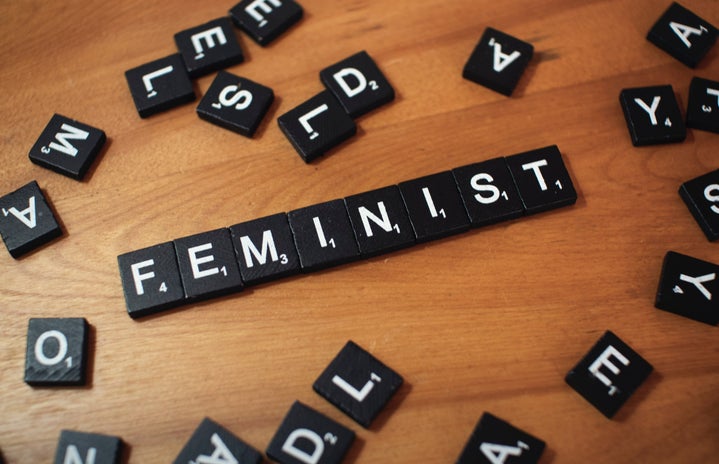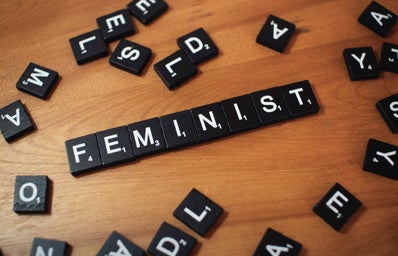Okay, let’s get this out of the way first. We need to have uncomfortable conversations and men’s rights is one of them. At a cursory glance, it is easy to assume and dismiss that this discourse was started by “incels” (Involuntary Celibate) and bitter men who lament about how women have “too many advantages” in society. Men benefit in Singapore as they hold high positions of power within the patriarchal hegemony, so what are their complaints? However, the patriarchy hurts men too. There are ingrained social stereotypes that are harmful to everyone — men, women, and non-binary. I think that it’s an unpleasant necessity to look at and delve into this particular argument of men’s rights.
I know it’s an incendiary topic to discuss. In our Singaporean context, which is a predominantly patriarchal society, men have embedded insidious advantages over women. Still, I want to delve into this odd topic regardless of my initial sense of trepidation. Gender inequality does not only contain physical differences but it restricts freedom of expressions that limit the types of roles men can play in our communities and domestic spheres.
So, how are men’s rights relevant in feminist discussions in Singapore?
Gender equality
Men should take a part in the conversation surrounding gender equality. We shouldn’t simply stop and place the responsibility on women to speak up and assert their place. Men have to be able to take a seat at the table and discuss where they benefit, and where they lose out. Toxic masculinity harms both men and women as it perpetuates and permeates our preconceived notions of “manhood.” Essentialising narrow ideas of gender and reduces men to a caricature, one where they are unable to express genuine emotion without the proverb to “act like a man” hanging over their every action. Boys and men are directly affected by this detrimental ideology of toxic masculinity.
Rape and sexual assault
In Singapore, the definition of rape is still gender-specific as it focuses on men as the perpetrators since it narrowly defines it as a “man uses his penis to penetrate the vagina, anus, or mouth of a person without the person’s consent.” However, Singapore has recently begun to acknowledge that now, both men and women can be considered victims of rape in Singapore.
Problematic gender stereotypes
The stereotype that men are potential sexual predators may also have played a role in other aspects of Singaporean life. According to the Adoption of Children Act, single men can only adopt a son and not a daughter. However, single women can either adopt a son or a daughter.
Another area where men lose out is in caretaking roles as the prevalent notion that men do not belong in the “mothering” roles such as education and healthcare. This depicts the traditional gender values that are still prevalent in Singapore where women are meant to be nurturing while men should be the dominant breadwinner. Within the healthcare and early childhood sector, there is still a common gender stereotype that these are nurturing roles that may not be suitable for men. As @thetwainhavemet has pointed out, since 2018, only 1% of all preschool teachers are male. These men teaching preschool felt that there were strong stigmatisation and negative sentiment as they felt discrimination. They face several restrictions as they have minimal physical contact with children. Not only is there social norms and gatekeeping, but in terms of pay, male nurses fall behind. According to two sources (Urban Wire and Salary Explorer), the income of female nurses was approximately five to eight per cent higher as compared to their male counterparts. The study from the Ministry of Manpower (MOM) reported in 2020 that women received S$342, approximately 6%, less in median monthly salary than men in similar jobs. Also, women tend to end up in teaching roles such as educational, healthcare and administration while men dominate executive and technical jobs. According to research cited, women favour these roles as it conforms to gender social norms. This is problematic as it perpetuates the idea that men can only be relegated to other sectors and restrict career paths.
In the domestic sphere, the dominant ideology is that men are fathers whose crucial role is to be the breadwinner instead of a nurturing aspect of caregiving. Thus, in 2016, according to the Ministry of Social and Family Development (MSF), mothers are more likely to have sole custody of children rather than men, 19.3% and 4.8% respectively. There is a consistent five-year trend till 2019 as 1 in 5 single-parent households was headed by males. Comparatively, women have longer maternity leave than men, approximately 16 weeks to 2 weeks. However, MSF states the government benefits extend to all children regardless of the marital status of their parents as both single fathers and mothers can approach their services for help if needed. While I feel that the law should be changed to make maintenance more gender-neutral, its application still needs to recognise these practical differences between the working parents.
Ultimately, we do need men in feminist spaces but they need to take on a supporting role instead of domineering. Don’t take gender equality and women and men’s rights as zero-sum arguments of “who has it worse”. When one social group benefits, all of us benefit. Toxic masculinity hurts everyone in different ways. We don’t have to step on one another in order to have more rights. Even if men do not want to be part of the feminist movement, at the very least, as former Supreme Court Justice Ruth Bader Ginsburg asks, “I ask no favour for my sex; all I ask of our brethren is that they take their feet off our necks.” There is space for men at the table and we wholeheartedly welcome all allies regardless of their gender preferences. There has to be a nuanced discussion on Singapore’s gender roles and how we have taken for granted certain stereotypes that are harmful to our society.
Links:
https://www.theurbanwire.com/2020/01/men-in-nursing/
https://stats.mom.gov.sg/Pages/Gross-Monthly-Income-Tables2018.aspx
http://www.salaryexplorer.com/salary-survey.php?loc=196&loctype=1&job=874&jobtype=3#disabled


